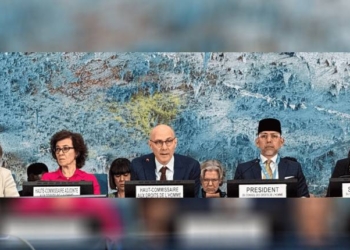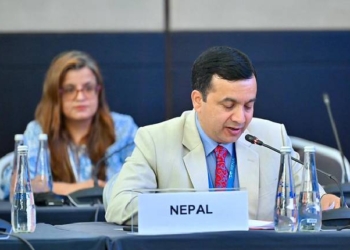Washington: The US has deepened its partnership with India and elevated cooperation through the Quadrilateral Security Dialogue, or Quad, Secretary of State Antony Blinken has said.
Speaking at the end-of-year press availability on Wednesday, Blinken said in the coming year, the US will continue to stand “shoulder-to-shoulder” with those who share its vision for a “free, open, prosperous, and secure world”.
“Our partnerships in the Indo-Pacific have never been stronger… We’ve deepened our partnership with India. We’ve elevated cooperation through the Quad with India, Japan, Australia,” Blinken said.
An informal strategic forum comprising US, India, Australia and Japan, one of the Quad’s primary objectives has been to work for a free, open, prosperous and inclusive Indo-Pacific region.
This year, the summit was hosted by Australia on the side-lines of the ongoing G-7 Summit in Hiroshima, where the leaders reaffirmed their steadfast commitment to a free and open Indo-Pacific that is inclusive and resilient.
The 2024 Quad Summit was supposed to be held in India for the first time likely on January 27 but it has been postponed as the proposed dates didn’t work out with the member countries, according to the government sources.
To further bolster their partnership in the Indo-Pacific, Blinken said that the US is working with the UK and Australia to produce nuclear-powered submarines.
The US has also launched new comprehensive strategic partnerships with Vietnam and Indonesia, a new Defence Cooperation Agreement with the Philippines, new trilateral initiatives with the Philippines and Japan, and new embassies in the Solomon Islands and Tonga.
Blinken further said that the US is more closely aligned than ever with the G7, with the EU, with other allies and partners on the challenges presented by Beijing.
“We’re working together to address them. We’re deepening cooperation and coordination between NATO and our Indo-Pacific allies. These efforts have allowed us to engage more effectively when tackling areas of concern, like China’s coercive trade and economic practices, peace and stability in the Taiwan Strait and the East and South China Seas, and human rights,” Blinken said.
(IANS)














